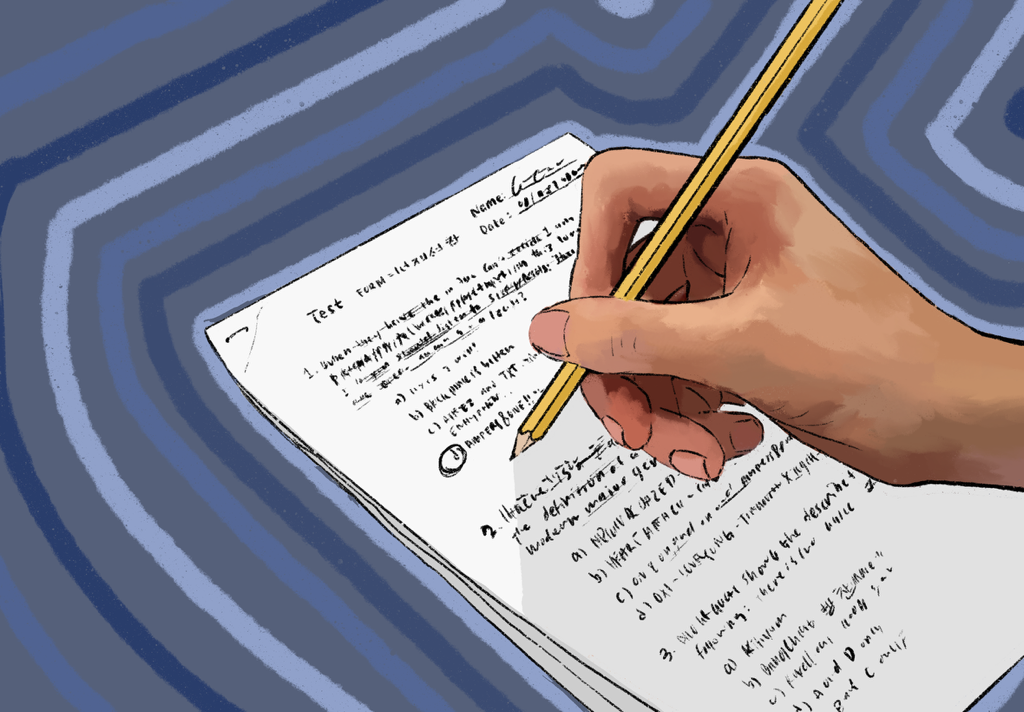In its Statement of Expectations, Choate demands that the members of its community “cultivate compassion and seek to serve others, both within and beyond Choate.” Unfortunately, Choate’s policy on drug abuse, which decrees that the “purchase, manufacture, possession, distribution, or use of illegal drugs (such as marijuana, cocaine, and steroids) will lead to immediate dismissal,” is neither compassionate nor in the service of others.
The hypocrisy of this policy lies in one word: will. Sure, Choate must look after the students under its care, but the inflexibility of its drug policy belies the empathy that the school elsewhere heralds. It seeks to punish with no attempt to understand.
This zero-tolerance policy fails to recognize the fundamental difference between a student who makes a foolish mistake and one who threatens Choate’s “healthy academic and social environment.” Worse, the draconian policy is also archaic. The 1980s, the era of Choate’s shameful cocaine scandal, saw an increase in zero-tolerance policies against drug use, which eliminate a school’s freedom to review disciplinary options case by case, and instead mandate expulsion for a single offense. That was thirty years ago.
The cocaine scandal of 1984 directly resulted in this rule change: The student handbook for the 1983-1984 school year reads, “Possession or use of any controlled drugs … could result in immediate dismissal.” The following school year, the handbook was updated to read, “Possession, sale or use of controlled drugs, and abuse of any other chemicals and possession or use of drug paraphernalia result in immediate dismissal.” The use of the word could is a small but important distinction that allowed the administration to effectively consider context, intention, severity of offense, and a number of other factors when deliberating their disciplinary verdict. The change made in the 1984-85 school year removed this ability, forcing the administration’s response to such offenses to be entirely stringent. Choate’s rule change seems to have been inspired by reasons beyond a simple concern for student health.
Zero-tolerance policies follow the unsubstantiated belief that, by removing students who are felt to be problems, a school generates a safer, more focused environment. But, according to a report published in 2013 by the independent Vera Institute of Justice, “no studies show that an increase in out-of-school suspension and expulsion reduces disruption in the classroom and some evidence suggests the opposite effect.” Moreover, there is no statistical correlation between the “overall success” of schools and their commitment to zero tolerance.
Let’s look at Choate’s peer schools. Neither Groton, Andover, Exeter, nor Deerfield have zero-tolerance policies on drugs. Loomis Chaffee has perhaps one of the most progressive policies on drug abuse, providing counseling and drug education to students found to be using illicit substances. Reformed drug policy does not inevitably lead to the moral disintegration of a prep school.
The school needn’t immediately rewrite its policy on drug abuse. But why not turn that will into a may? “Any purchase, manufacture, possession, distribution, or use of illegal drugs …may lead to immediate dismissal.” We simply believe that the lives of students could be substantially improved by a simple change in language. That seems a good place to start.




